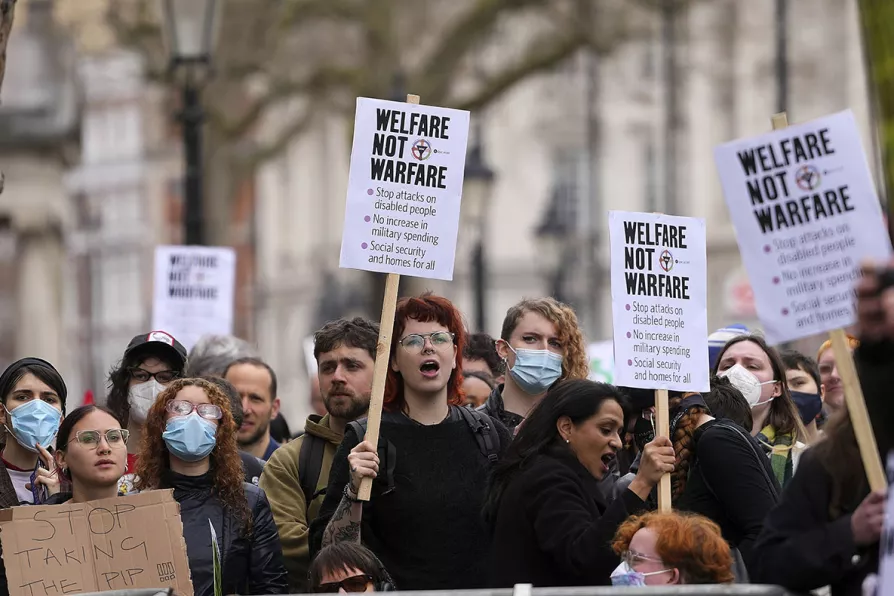John Wojcik pays tribute to a black US activist who spent six decades at the forefront of struggles for voting rights, economic justice and peace – reshaping US politics and inspiring movements worldwide

 Protesters show placards as Chancellor Rachel Reeves is about to leave 11 Downing Street to deliver the spring statement in London, March 26, 2025
Protesters show placards as Chancellor Rachel Reeves is about to leave 11 Downing Street to deliver the spring statement in London, March 26, 2025
WELFARE CUTS. Reductions in departmental spending. Job cuts in the public sector. But a boost to spending on the military.
These were the main elements of the Spring Statement delivered by the Chancellor.
Yet government ministers seem dismayed that they are accused of implementing austerity, pointing to rising spending in real terms. In reality, as the Joseph Rowntree Foundation shows, the average family will be £750 a year worse off by 2029, and 400,000 households will be pushed into poverty.

The 2025 Budget shores up the PM’s political position with headline-grabbing welfare U-turns, but with no improvements on offer to declining public services or living standards, writes MICHAEL BURKE

Exempting military expenditure from austerity while slashing welfare represents a fundamental misallocation of resources that guarantees continued decline, argues MICHAEL BURKE











